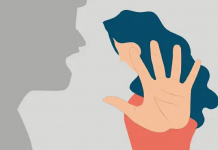This article is written by Sakshi Komal Dubey, a student at Vivekananda Institute of Professional Studies.
Table of Contents
Introduction
We all tried to adapt to ‘the new normal’ and after ten months of living past it, we can say that somewhere we have got comfortable and companies switching to work from home culture permanently is a proof of this fact. On 25th March, 2020, many things changed, in the beginning, we all thought it might be a few weeks or months but who knew humans can adapt so well. From schools to workplaces, from government sector jobs to private-sector jobs all found their way of not getting left behind by switching to online work mode. Except for the frontline workers, everyone had a new life. We all got engrossed in our new routine that some problems which we used to be sound about got blurred because of new problems that arose in front of us.
Like every coin has two sides, the consequence of the nationwide lockdown was also two-fold. On one side, there was a decrease in the number of cases of rape, sexual assault because physical human interaction was restricted, whereas the number of cases of domestic violence and cybercrime increased manyfold. Lockdown potentially affected cases of sexual harassment in two contrasting ways, (i) increase in sexual harassment physically at home by their partners or virtually by colleagues and (ii) decrease in crimes that happen in open space.
The United Nations Women has defined the term sexual harassment as, “Unwelcome sexual advances, requests for sexual favours, and other verbal or physical conduct of a sexual nature”. But the organisation came up with a term that specifically focuses on the harassment that one faced during the pandemic. “Shadow Pandemic” is the result of economic, health, and security strains brought on or worsened by movement restrictions, crowded homes, and reduced access to peer groups and social networks. The organization also launched a campaign to curb the menace and help women who fall victims to the Shadow Pandemic, the campaign mainly focuses on the spike of domestic violence amidst the lockdown imposed due to COVID-19.
Physical Sexual Harassment
UN Women has collective data of 106 countries which shows the rise of violence against women by their partner. The organisation also states that one in three women face sexual violence by an intimate partner. The escalation in domestic violence cases is not confined only to one country. Government authorities of Argentina, Canada, France, Germany, Spain, the United Kingdom, and the United States have stated an increase in reports of domestic violence during the crisis, and heightened demand for emergency shelter.
In India, data collected by the National Commission for Women, a body tasked with advising the Government on policy matters concerning women showed an increase in the number of complaints received a few weeks after the lockdown began on 25th March 2020, compared with the period prior to the lockdown. A study by UN Women shows that there was a clear decrease in sexual violence and rape reported to authorities and an increase in calls to helplines in some countries during the lockdown.
Nonetheless, these are the cases that were reported, there must be many cases that went unreported due to unavailability of appropriate resources, fear of abandonment, controlling the behaviour of their partners, restricted contact with peers and officials. UN Special Rapporteur on Violence against Women reported that courts in many countries were either closed or operating at reduced hours, leading to delays in processing cases, and cases referring to domestic violence were not usually prioritized. Due to unemployment, financial constraints, emotional stress, subsequent alcohol consumption and psychological issues accumulated due to isolation in the lockdown could be the reasons for mental frustration which tends to come out as violence. NCW chairperson Rekha Sharma told the media that complaints have been increasing every day during the lockdown. She suspects that the number of such cases must be much higher, but many are not getting reported due to the constant presence of the abuser at home.
The author believes that a criminal has no gender and even men can be victims of sexual harassment at home or workplace though women fall prey to it more often. Both men and women can be predators and victims of sexual harassment whether it is physically or virtually. Maybe we don’t come across cases of sexual harassment against men because they are not highlighted or reported more often. We think men can’t be harassed because they are of the dominant gender and women have been always perceived to be meek and submissive but as societal development takes place and women hold a powerful position in an institution, sexual harassment against men has become prevalent. One tends to exploit power when they are in a position to do so.
Virtual Sexual Harassment
Although we are confined to our homes and have less means to interact physically with people but crime seems to find its place anyways. Quarantine measures and self-isolation policies increased internet usage between 50% to 70% but with work from home culture came its subsequent struggles. While we were confined to our houses, we were glued to the digital devices, people got exposed to various cybercrimes and there was a sudden boom in virtual harassment cases.
When we talk about sexual harassment, we often imagine a stranger assaulting someone but more than often sexual harassment is perpetrated by someone the victim already knows. Making sexual remarks, making someone feel uncomfortable by asking for sexual favours following up with blackmails, sending lewd and explicit pictures, stalking, zoom-bombing, vulgar texting after official hours, inappropriate questions about someone’s sex life among many other things consists of virtual sexual harassment.
A social psychologist of Florida International University with the Cyber Civil Rights Initiative (CCRI) studied various subjects of sexual cyber abuse during the pandemic. Wherein CCRI reported 54% increase in calls to their Crisis Helpline, which provides access and communication to victims of non-consensual pornography. The office of the eSafety Commissioner in Australia reports that online abuse and bullying have increased in the past month by 50%.
Doubling of cases of revenge porn was seen in the UK during the lockdown. Moreover, online sex abuse became a common feature of domestic abuse, as intimate partners threaten to share sexually explicit images without victims’ consent. National Commission for Women of India showed an upward trend from the month of March to July in cybercrime against women. Many such cases would go unreported due to coercion of the employer, fear of job loss, embarrassment, the victim has to work with the colleague until the case disposes of. Increasing virtual sexual abuses may restrict one’s internet access in order to avoid the perpetrator.
Though all the data present on the internet shows the conduct of sexual harassment against women, nowhere does it mean that other genders do not fall victim to virtual sexual harassment. The number of male suicides is higher than female suicides at the workplace. India currently has no legal framework where a woman can be prosecuted for committing sexual offences against man. Whilst, gender-neutral laws have found acceptance in 77 countries including Denmark, Australia, Switzerland, the U.S, the U. K. Sexual harassment against men is more prevalent in institutional settings than otherwise. There’s a possibility that the cases of sexual harassment against men do not get reported due to social stigma, preconceived notions of masculinity, and other reasons mentioned above.
Conclusion
Even though the data varies across continents the social, economic and psychological reasons remain the same everywhere. The perpetrator’s mindset is found to be similar, in virtual harassment they think they might escape due to the anonymity and can exploit the person across the screen very easily. Every country has legal recourse for sexual harassment but strict implementation is need of the hour. The laws should be stringent and should act as a deterrent. Change is to be brought from the roots, and that is why gender sensitization is one of the important parts of one’s childhood.
Governments play a vital role in rescuing victims of physical sexual harassment but one should be aware of the first-hand recourses that are available against the same. Companies and institutions should formulate new harassment protocols and educate their employees about the safe usage of the internet. Evils that have a strong grip on the society can only be cured with a collective conscience.
LawSikho has created a telegram group for exchanging legal knowledge, referrals and various opportunities. You can click on this link and join:
 Serato DJ Crack 2025Serato DJ PRO Crack
Serato DJ Crack 2025Serato DJ PRO Crack











 Allow notifications
Allow notifications


